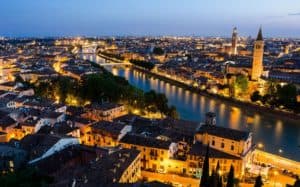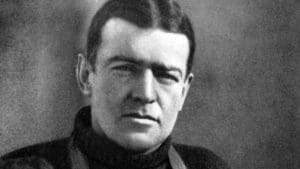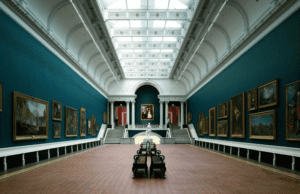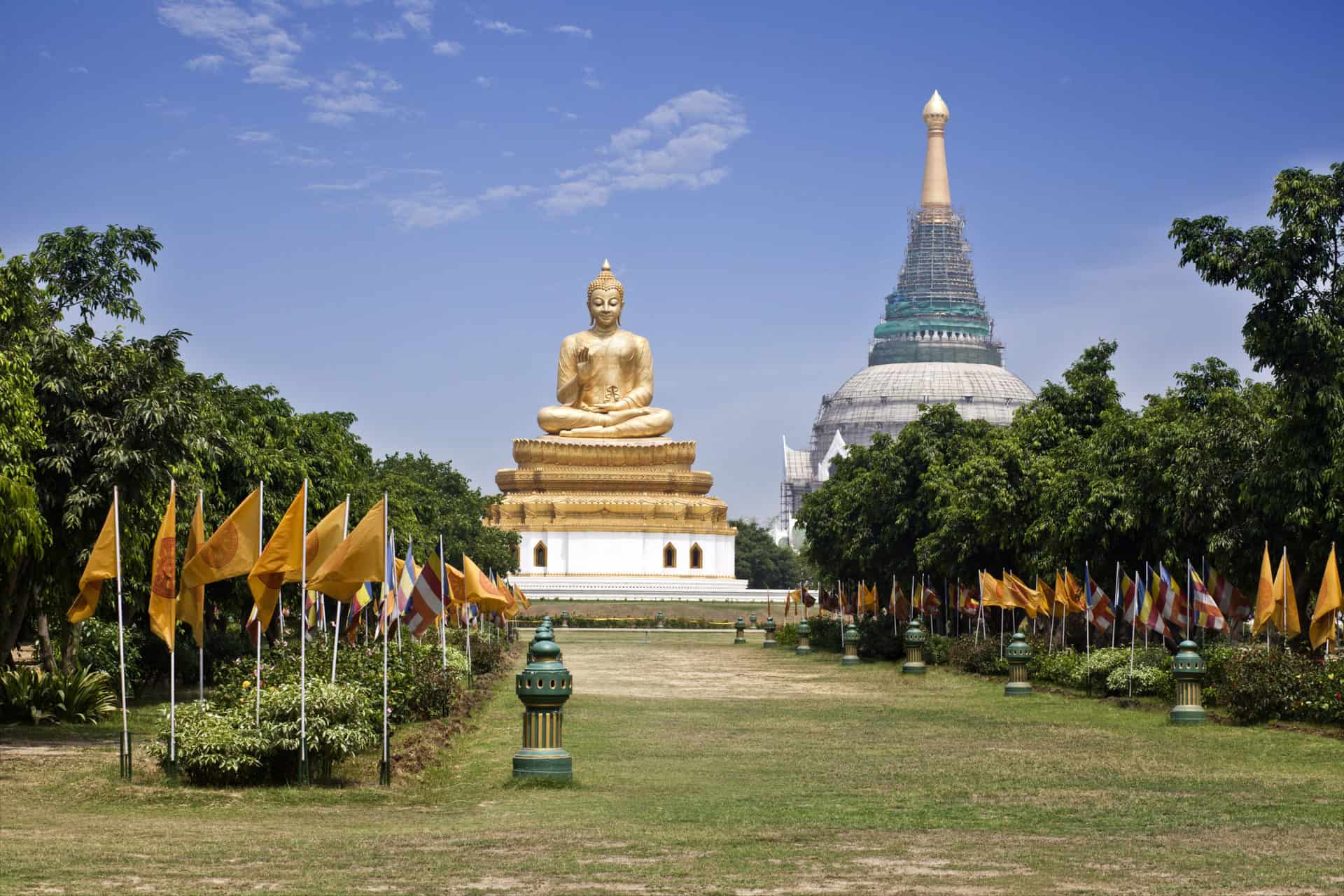Afro-European Cultures: Exploring the Fusion of African and European Traditions

Updated On: April 17, 2024 by Noha Basiouny
The multifaceted tapestry of Afro-European cultures exemplifies the profound interweaving of African and European traditions through the annals of history. This confluence of cultures has been shaped by vast historical events, such as the colonial era and the transatlantic slave trade, which have had lasting impacts on societies on both continents. The repercussions of these epochs continue to influence contemporary Afro-European identities, showcasing a blend of traditions, shared histories, and progressively intertwined futures.
Our interactions have produced a dynamic socio-political landscape where the legacies of migration, economic exchange, and cultural movements have shaped the ethos of Afro-European communities. The blend of African and European traditions explores the identities formed at the crossroads of these two continents, reflecting a rich tapestry of shared experiences and distinct attributes within Afro-European societies. As we consider modern Afro-European communities and their integration within broader societal structures, we also witness an evocative narrative of resilience, innovation, and cultural transformation.
Table of Contents
Historical Overview of Afro-European Interactions
Throughout history, the interactions between African and European societies have shaped the political, social, and cultural landscapes of both continents. From rulers in the Roman Empire to the role played by trade and religion, these exchanges form a complex tapestry of shared history.
Roman Empire and Septimius Severus
In the annals of the Roman Empire, African influence is exemplified by the reign of Septimius Severus. Born in Leptis Magna, present-day Libya, Severus became the empire’s first African Roman Emperor. His rise to power in 193 AD marked a significant moment in Roman history, reflecting a period when the empire was a multicultural entity, embracing diverse peoples from its vast territories, including North Africa.
Arab and North African Muslims in Europe
The medieval era saw significant Afro-European contact through the presence of Arab and North African Muslims in Europe, particularly during the Moorish occupation of the Iberian Peninsula. Beginning in the 8th century, this era lasted until the late 15th century and shaped Europe’s architecture, science, and philosophy, with centres of learning in places like Córdoba becoming a confluence point for knowledge from across the Muslim world and North Africa.
Trade and Cultural Exchange
Trade has long been the lifeline of cultural exchange between Africa and Europe. The trade routes across the Sahara Desert formed networks connecting North Africa with Europe and Sub-Saharan Africa. This commerce included the exchange of gold, salt, and, tragically, enslaved people. In more positive aspects, these routes allowed for the sharing of ideas, technologies, and artistic practices, contributing to a rich tapestry of mutual influence and shared progress throughout centuries of interaction.
Our engagement with these historical narratives builds a deeper understanding of how societies have converged and evolved through shared and complex histories.
The Impacts of Colonialism and Slave Trade
In this section, we will examine the profound effects that colonialism and the transatlantic slave trade had on shaping Afro-European cultures and how these events continue to influence post-colonial societies.
Colonisation of Africa
The colonisation of Africa by European powers had a monumental impact on the continent. It reshaped African societies, politics, and economies, often aligning them to serve colonial interests. For example, European colonization disrupted indigenous art traditions by imposing European artistic ideals. This led to a fusion of African and European styles in various forms of art. Territories were carved without regard to ethnic or cultural boundaries, sowing seeds of conflict that would persist into the post-colonial era.
Transatlantic Slave Trade
The transatlantic slave trade was a brutal chapter in human history, forcibly relocating millions of Africans to serve as slaves in the New World. It was not only a grave human tragedy but also depleted Africa of its human resources. The demographics and social structures of African societies were forever altered, which in turn had significant cultural consequences, blending African traditions with those of European and other diaspora cultures in the Americas.
Post-Colonial Societies
In the wake of colonial rule, post-colonial societies in Africa have faced numerous challenges, including political instability and strained ethnic relations rooted in arbitrary colonial boundaries. Postcolonial studies often focus on analysing these issues and the attempts at cultural reconstruction, social healing, and economic development. Notably, movements like Pan-Africanism have sought to unite peoples of African descent and cultivate a sense of shared identity and purpose, recognising the interconnected histories of Africa and Europe and striving towards collective progress.
Migration and the Formation of Afro-European Identities
Migration has always played a pivotal role in shaping identities, and in the context of Afro-European experiences, it’s integral to understanding the blend and synthesis of cultures across continents.
Early African Presence in Europe
The African presence in Europe dates back to various historical epochs, marked by both voluntary migration and the legacies of colonialism. These early encounters set the stage for a complex intermingling of cultures that would eventually contribute to the Afro-European identity. For example, the Moors’ occupation of Spain from the 8th to the 15th century introduced African influence into European soil.
Modern Migration Trends
Contemporary times have seen an increase in migration from African countries to Europe due to a variety of factors, ranging from economic opportunities to fleeing political instabilities. States like Morocco have become significant starting points for migrants seeking to enter Europe. The resulting immigration has been shaping not just the demographic landscape of Europe but also its cultural contours.
Cultural Synthesis and Identity
The Afro-European identity is a blend of long-standing African traditions and adopted European customs, creating a unique cultural synthesis. This cultural identity can be seen in areas like music, fashion, and cuisine, where the interplay of diverse influences fosters a distinct Afro-European aesthetic. Through this continuous fusion, Afro-Europeans carve out their own space within the European cultural mosaic, contributing to the EU’s multicultural dialogue.
Migration and the interweaving of cultures and traditions help shape the diverse and complex identities found within Afro-European communities. From the early influences of Africans in Europe to the ongoing immigration and resulting cultural synthesis, the tale of Afro-European identities is one of continual evolution and rich diversity.
Socio-Political Contexts in Afro-European History

The histories and experiences of African Europeans have been shaped by a complex web of socio-political factors. Understanding how these communities navigate political representation, influence policies, and assert their rights is crucial to comprehending the Afro-European historical narrative.
African Europeans and Political Representation
In recent decades, we’ve observed a gradual yet significant increase in the political representation of African Europeans. This shift is evident through the election of officials of African descent in European parliaments, which marks a change toward greater inclusivity.
Policies Affecting Afro-European Communities
Elected representatives with Afro-European backgrounds have been pivotal in advocating for policies that directly impact their communities. These policies range from enhancing anti-discrimination measures to improving security and justice for minority groups across Europe.
Justice and Human Rights
The pursuit of justice and the protection of human rights remain central to the concerns of Afro-European communities. There has been an ongoing struggle against systemic discrimination, striving for equal treatment under the law and the safeguarding of civil liberties for everyone, regardless of ethnic background.
Economic Contributions and Labour Dynamics

Within Afro-European cultures, the interplay between labour and economic contributions stands as a testament to the dynamic and critical role of individuals of African descent in forging Europe’s socioeconomic landscape.
Afro-European Roles in the Labour Market
We recognise that individuals of African descent have been instrumental in shaping the labour markets across Europe. Historically, this demographic has been engaged in various sectors, contributing to both skilled and unskilled labour forces. Notably, individuals of African descent have taken on pivotal roles in trades and industries, benefiting local economies and enriching the cultural fabric of European society. Their participation in the labour market has often been characterised by a dual dynamic: while integrating into European communities, they maintain robust connections with their countries of origin, thus fostering bilateral economic growth.
Economic Impact of Afro-European Communities
The economic contributions of Afro-European communities are multifaceted, encompassing both the tangible and intangible assets they bring to the table. By infusing African traditions with European practices, these communities have introduced innovative skills and trades, contributing to the continent’s economic diversity. Furthermore, trade links established by Afro-European migrants facilitate transcontinental exchange, supporting both local economies in Europe and economic development in African nations. The effect of their economic activities can be seen not just in monetary terms but also through the social and cultural enrichment of European societies, signifying a profound economic impact across nations.
Cultural Movements and Intellectual Thought
Cultural movements and intellectual thought within Afro-European contexts represent a complex interplay of African and European traditions. These interactions have birthed rich literary, philosophical, and artistic expressions, which stand as testimonies to the shared and divergent histories that make up the Afro-European experience.
Afro-European Literary and Artistic Expression
Afro-European literature and art reveal narratives and visual stories that reflect the lived experiences of those with African and European heritage. Through mediums like renaissance paintings and contemporary artworks, creators have navigated their dual heritage, often challenging and reshaping conventional narratives around identity and belonging. Writers, poets, and artists of African descent in Europe continue to contribute significantly to their national and cultural canons.
Philosophy and Critique of Eurocentrism
Philosophical thought within Afro-European contexts examines and critiques Eurocentrism, with scholars such as Edward Said critically analysing the implications of European dominance in historical narratives and knowledge production. Contributions to decolonial studies by African philosophers have been instrumental in questioning established historical and cultural paradigms, forging pathways to a more nuanced and equitable understanding of African peoples and cultures.
Influence of African-American Cultures
The impact of African American cultures on Afro-European societies is undeniable. The African American struggle for civil rights has inspired a host of movements and an outpouring of creative and intellectual work within Europe, resonating with the experiences and aspirations of the Afro-European diaspora. This cultural synergy highlights the global nature of the fight against discrimination and the quest for recognition and justice.
Gender and Racial Dynamics in Afro-European Societies

In Afro-European societies, the interwoven fabric of gender and racial dynamics creates a distinct socio-cultural landscape. Here, we explore how racial constructs and gender roles define community interactions.
Constructs of Racial Inferiority and Superiority
Racial constructs within Afro-European communities stem from historical power imbalances. Notions of racial superiority often coincide with European colonial legacies, whereas racial inferiority is continuously challenged by both African and Afro-European advocacy for equality. At the heart of Pan-Africanism, there is a push to overcome such racial stigmas, as reflected in literature that re-examines the movement’s history and relevance in modern societies.
Gender Roles Within Afro-European Communities
Gender roles in these communities reveal a tapestry of traditional African values blended with European influences. Women, especially those of African descent, simultaneously navigate through patriarchal structures and their quest for gender equality. They negotiate their rights within the framework of the African human rights system, which seeks to accommodate both the universality and cultural relativity of women’s rights. This struggle and contribution to societal growth underscores the critical role of gender in shaping Afro-European communities.
Afro-European Experiences of Sovereignty and Borders

In addressing the multifaceted interplay between African and European traditions, we shed light on the notion of sovereignty and the experiences of borders as they relate to Afro-European communities.
National Sovereignty and Afro-European Citizenship
Sovereignty embodies a nation’s absolute power to govern itself, but this concept becomes complex within the realm of Afro-European contexts. It influences how Afro-European individuals navigate their identity and status within predominantly European nations. National policies may enforce ideals that shape Afro-European citizenship, resulting in a unique intertwinement of African heritage and European nationality where personal and collective identities are constantly redefined.
Immigration, Borders, and Asylum
The dynamics of immigration and control of borders have significant implications for members of the Afro-European community. We observe that as individuals seek to move across these geopolitical boundaries, they often encounter a rigid system of border management.
This creates profound experiences for those seeking asylum, as they must navigate the intricate legal frameworks that govern their mobility and potential refugee status. The process of securing asylum thus reflects broader discussions around sovereignty and the rights individuals possess as they cross into new territories.
Modern Afro-European Communities and Integration

Within the diverse landscapes of Europe, modern Afro-European communities are carving out spaces for cultural exchange and integration, blending African traditions with European influences.
Social Integration and the Role of Communities
The evolution of Afro-European communities in Europe has been marked by a dynamic process of social integration. These communities foster intercultural dialogue and provide spaces where Afro-Europeans can celebrate their heritage while also engaging with wider European society. Social integration is manifested through community events, cultural programmes, and local initiatives that promote inclusivity and mutual understanding. These efforts not only preserve African traditions but also play a pivotal role in shaping the multicultural identity of European nations.
The African Diaspora in Europe
The African diaspora in Europe represents a multitude of cultures and experiences, reflecting the histories and trajectories of various African communities across the continent. As diaspora populations establish themselves in European cities, they contribute to the cultural tapestry with their unique customs, art, and narratives.
Integration strategies have been significant in recognition of the diaspora’s contributions to European societies, propelling initiatives that aim to address challenges faced by these communities, such as racial inequities and barriers to economic participation. Through collective agency, as witnessed in spheres like the arts, politics, and business, members of the African diaspora continue to exert a transformative impact on the societies they inhabit.
Frequently Asked Questions
In this section, we explore some of the most common inquiries regarding the rich tapestry of Afro-European cultures. These questions shed light on the historical interplay, notable figures, population demographics, and variation of traditions across European countries.
How has the blending of African and European traditions impacted modern European culture?
The fusion of African and European traditions has deeply enriched modern European culture, infusing it with diverse music, culinary, and artistic expressions. This cultural blend is evident in genres like Afrobeat’s influence on European pop music or the impact of African cuisines on European food scenes.
What is the historical significance of black European royals?
Black European royals have historically symbolised the longstanding connections between Africa and Europe. Their presence in royal lineages challenges the narrative of a homogeneous European identity and highlights the continent’s cultural diversity.
Which European countries have the highest proportion of residents with African heritage?
Nations such as France, the UK, and Portugal have sizeable populations with African heritage, reflecting their historical ties through colonialism and migration patterns.
Who are some notable individuals of Afro-European descent?
Prominent individuals of Afro-European descent include politicians like Italian MEP Cécile Kyenge and French footballer-turned-activist Lilian Thuram, who have both impacted society through their respective fields and activism.
In what ways do Afro-European cultures vary by country within Europe?
Afro-European cultures exhibit significant variation, with distinct regional differences in language, customs, and societal integration. For instance, the Afro-Portuguese community’s traditions differ markedly from the experiences and cultures of black Britons.
How do the demographic trends of the black population in Europe influence cultural dynamics?
Demographic trends of Europe’s black population influence culture by prompting dialogue on identity and inclusivity. These dynamics stimulate societal change and cultural evolution, as seen in the arts, politics, and public discourse.






